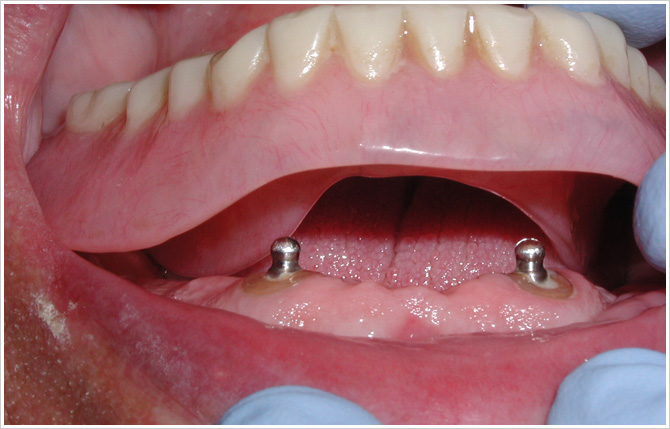Table of Content
He received a BS in Epidemiology and Biostatistics from the University of Alabama and earned his Doctor of Dental Surgery degree from the University of Tennessee College of Dentistry. He also serves as a full-time professor and the Director of Surgical Prosthodontics at the University of Tennessee. Dr. Adatrow received the Dean's Junior Faculty Award and the John Diggs Faculty Award, and he was inducted into the Deans Odontological Society. One problem that requires you to know how to fix dentures is the slipping of dentures. Dentures might end up slipping on longer use as you perform activities of daily life such as eating, talking, or laughing. Facing this situation might be a sign that the underlying bone structure of the gums in your mouth is undergoing some change.

The upper dentures get suction in them which helps in their security. On the other hand, the good fixing about the lower dentures depends upon your jawbone’s depth and width which stays well after extractions. As lower dentures are not able to get the suction they need, they depend on the oral cavity muscles to aid them in holding up in place. After the initial period of a few weeks getting used to your partial dentures, you should feel comfortable talking and eating with them in.
How can you tell if someone has dentures?
Dentures can also shrink or change shape over time, which can cause them to not fit well. Dentures should be brushed once a day at least, and soaked nightly in water or mild cleaning solution. For dentures that are not implant-supported, using the proper adhesive will make all the difference. Maybe people will look at you funny if you sing all of your speech, but speech therapists recommend singing your speech in the privacy of your own home. This can help your cheeks and tongue get used to the feeling of dentures in your mouth.

And your dentist will have a variety of acrylic trimmers available, with varying degrees of roughness, so he or she will be able to customize the repair. Clean the dentures before putting them back in your mouth and checking your adjustments. Well-fitting dentures restore form and function to your mouth, as well as facial symmetry. They can thin the bulk material to make your dentures fit better and look nicer.
What causes poor fitting dentures?
If you try to file your dentures yourself, you risk damaging them beyond repair. As dentures are expensive, you risk losing a large amount of money if you try filing them yourself. It's always best to ask your prosthodontist or dentist to adjust them. 1) Have Your Jawbone Examined And Any Irregularities Treated. Your dentures rely on the gum ridge for their primary support.
The bone ridges that were once used to support the natural teeth in your mouth would shrink or alter their shape with time. It will create a situation in which dentures will no longer conform to the accurate gum shape your body might have. Some of the symptoms of the ill-fitting dentures include those that may move during the function. What’s more, they might also include the upper dentures which lose their suction.
What can I use instead of denture glue?
You will find that this helps you to sleep better at night and is also helpful when adjusting to new dentures. After you wear dentures for a period of time, they wear down your jaw bone, which means they won't fit as well. Most of the time, your dentist can reline them to fit better again. Without natural teeth in your gums, they will become less dense.

If you're experiencing persistent discomfort with your dentures, it's always worth consulting with your dentist for an assessment and properly fitting them. When you first get dentures, your mouth needs time to adjust to the new teeth. To help your mouth out, you can use dental adhesives to hold them in place for the first few days. Eventually, though, the muscles in your mouth should adjust to keep your dentures in place, so you should only need to use them for a short time. Adhesive is helpful when you have pain as it holds your denture still in your mouth. Movement against an already sore spot will lead to an ulcer.You an also use adhesives as a temporary measure when they start to become loose after years of wearing.
If the dentures don't fit comfortably, there may be a fix for you! Sometimes, adjusting the position of the dentures can help them fit better. If that's not an option, you may need to have them custom made. A dental professional can lace the dentures more snugly to your gum line orremove excess material from around the stems in order to create a more comfortable fit. If you find yourself struggling with comfort or mobility, it's best to speak with your dentist about options. Your dentist may suggest a denture reline or a new set of dentures in order to improve their fit.

If you wear ill-fitting dentures for too long, it can cause irritation and sore spots in your mouth. When something feels off with them, visit your dentist! If there is something wrong with them fitting properly, your dentist can adjust the acrylic so it does not rub the gum in that area. To tighten the false teeth against the gums the dentist may need add a liner inside the denture to make them fit tightly again. You should take some time to check your dentures regularly to see if they are fitting well. You can do this by gently poking and prodding them with your fingers, or by flexing and twisting them.
There can be a transitory period until you get used to them. If the feeling does not pass after a week and you find it hard to eat with them, make an appointment with your dentist. It is possible that the back margin of the denture is too long and touches the reflex centers in the back of your throat. Dental experts recommend that you give your gums a break of six to eight hours a day so that any soreness or irritation has a chance to heal.
Your gums and cheeks may feel overly full, and it may seem strange to have these new teeth in your mouth (especially for full-mouth dentures). If you are recovering from the surgery of implant-supported dentures, your recovery time may make adjusting to new dentures more challenging. In general, once you are healed, getting used to dentures occurs gradually over 30 days, on average. How long adjusting to dentures takes depends largely on the type of dentures you have and how long you have been missing teeth. It's best to have them adjusted by your dentist, who has the expertise to do so.
Use the rotary tool to gently rub against that area, filing it down. Be sure to clean the dentures before putting them back in your mouth and testing the adjustment, so you don't irritate your gums with the filed surface. Over time the shape of your gums and the bones that support your dentures can change, which means they may no longer fit properly.
The content of this article is not intended to be a substitute for professional medical advice, examination, diagnosis, or treatment. You should always contact your doctor or other qualified healthcare professional before starting, changing, or stopping any kind of health treatment. The soft lining will only last a few months, but it can be good if you have trouble with harder dentures. Hard linings are made of resin and are meant to last longer.
How Can You Pass When You Have a Drug Control
One of the most common reasons why dentures feel uncomfortable is because they are not properly fitted. This can be a result of a number of factors, such as overly broad or narrow temples, incorrect curves around the lower jawbone , or too low of a profile. Other potential causes may include if your dentures have pointed edges - these can irritate and tear the gums around your mouth. Finally, improper tooth alignment can also lead to discomfort.

However, you need to have your dentist reline your dentures when they become loose, so you should only use the glue for a short while. Partial dentures fit better in the mouth using some simple adjustments so they can fix better in your mouth. There are certain pressure points and sore spots that can be relieved by fixing the dentures. If there is gagging or the distance is too long between the teeth or the gums, the dentist might need to shorten the area through clasps. A dentist may need to optimize clasps retention as they fix this problem.

No comments:
Post a Comment